Choosing a careerpath in the medical field is a significant decision that requires careful consideration. One option that often stands out is specializing in a particular area of medicine. However, is medical specialities a good career path?
Medical specialties offer professionals the opportunity to focus their expertise and skills on a specific branch of healthcare. In this article, we will explore the advantages and considerations associated with choosing a medical specialty, helping individuals make informed decisions about their future in healthcare.
How To Become Medical Specialities?
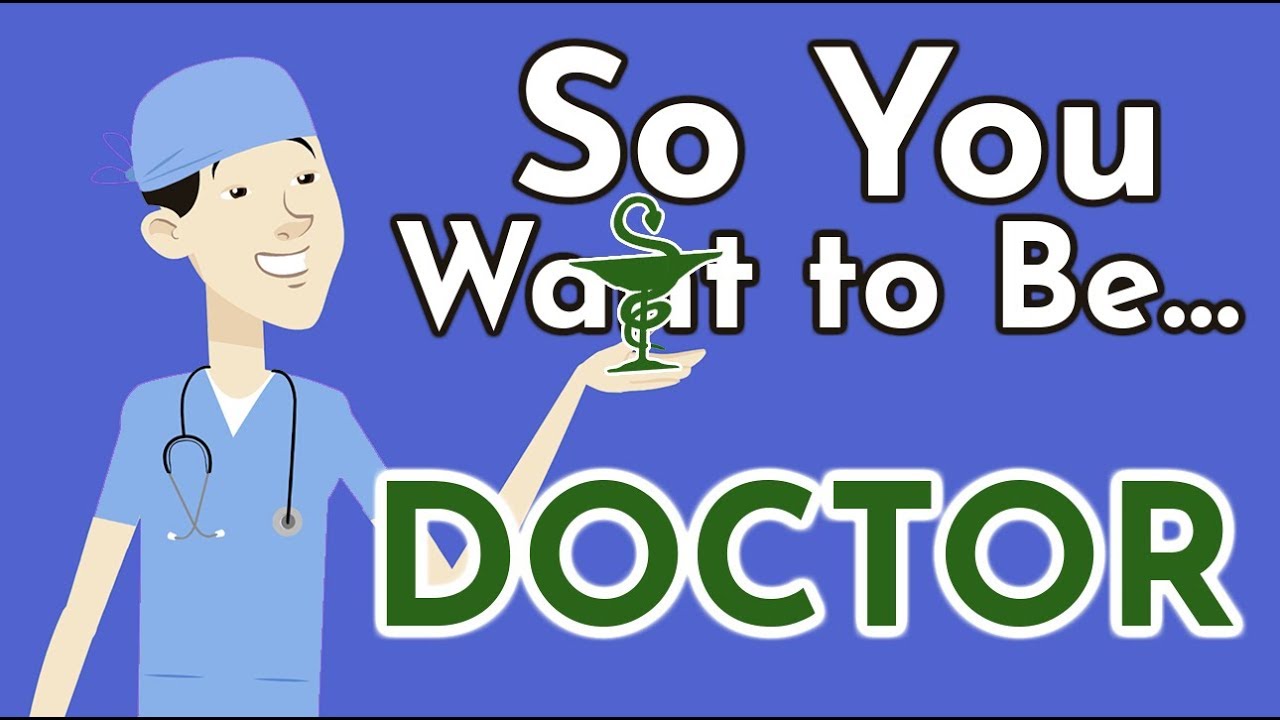
So You Want to Be a DOCTOR (How to Become One) [Ep. 1]
Becoming a medical specialist requires a significant amount of education, training, and dedication. Here are the general steps to pursue a career in medical specialties:
- Undergraduate Education -Obtain a bachelor's degree in a science-related field, typically completing pre-medical coursework. It's important to maintain a high GPA and gain relevant experience in healthcare settings through volunteering or internships.
- Medical School -Successfully complete medical school, which typically takes four years. This involves both classroom instruction and clinical rotations to gain practical experience in various medical specialties.
- Residency Program -After medical school, aspiring specialists must complete a residency program in their chosen specialty. Residency programs can last anywhere from three to seven years, depending on the specialty. During this time, doctors receive supervised training, hands-on experience, and further knowledge in their area of specialization.
- Fellowship Training (Optional) -Some medical specialties require additional fellowship training after completing residency. Fellowship programs allow doctors to further sub-specialize within their field of expertise and gain specialized skills and knowledge.
- Licensure and Board Certification -After completing residency and/or fellowship training, doctors must obtain a medical license to practice medicine in their respective country or state. Board certification is optional but recommended for many specialties. It involves passing an examination conducted by the relevant medical board and demonstrating expertise in the chosen specialty.
Types Of Jobs In Medical Specialties
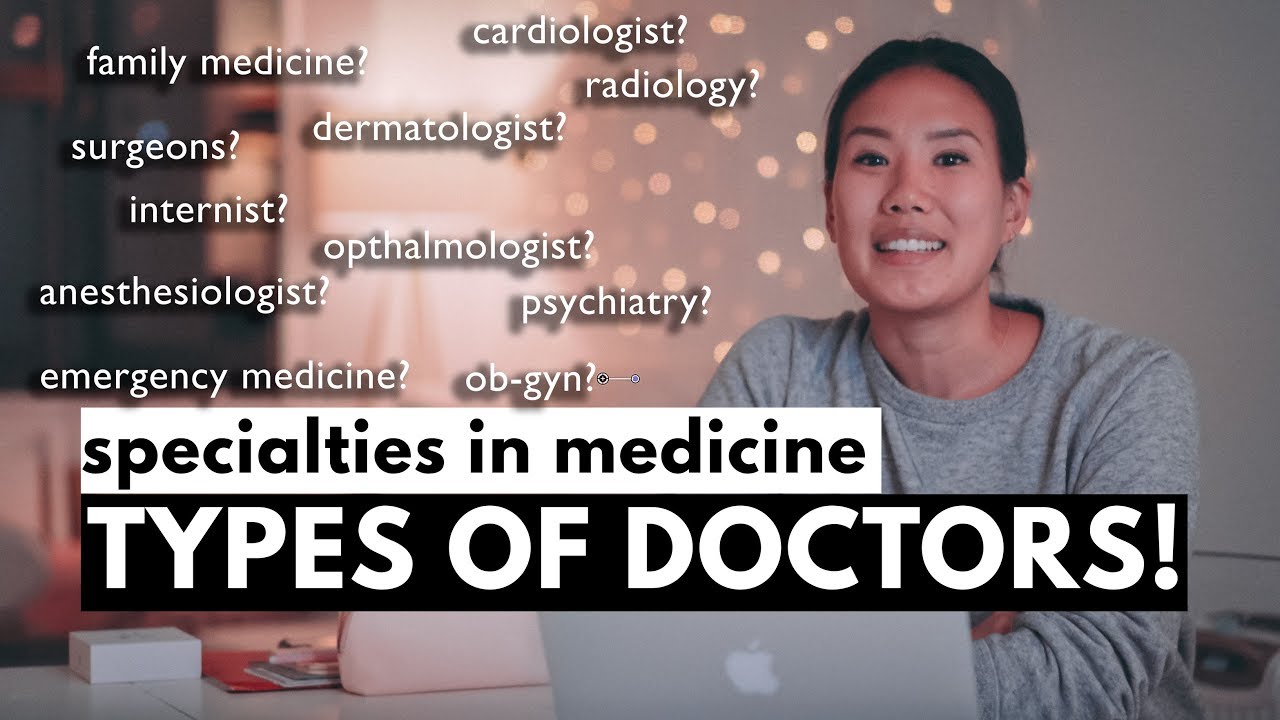
What are the different types of doctors? Specialties in Medicine!
There are various types of jobs available within medical specialties, each focusing on a specific area of expertise. Here are some examples:
- Physicians/Surgeons -Medical specialists work as physicians or surgeons within their chosen field, providing specialized medical care, diagnosing conditions, performing surgeries, and developing treatment plans.
- Clinical Researchers -Some medical specialists engage in clinical research, conducting studies to advance knowledge and improve treatments within their specialty. They may work in academic institutions, research facilities, or pharmaceutical companies.
- Medical Educators -Specialists with a passion for teaching and mentoring may pursue careers as medical educators. They teach medical students, residents, and fellows, and contribute to the training and development of future healthcare professionals.
- Consultants/Advisors -Medical specialists may work as consultants or advisors, providing expert opinions and guidance on specific medical conditions or procedures. They may collaborate with healthcare organizations, insurance companies, or legal entities.
- Hospital Administrators -Some medical specialists take on leadershiproles within healthcare institutions, overseeing departments, managing resources, and developing policies and procedures to ensure efficient and effective delivery of specialized care.
- Telemedicine Practitioners -With the advancements in technology, medical specialists can provide virtual consultations and telemedicine services. This allows them to reach a broader patient population and offer specialized care remotely.
Determining which medical specialty has the best future is challenging as it depends on several factors, including advancements in medical technology, changes in healthcare policies, population demographics, and emerging medical conditions. However, some specialties are projected to have strong growth and demand in the coming years. These include:
- Geriatrics -With an aging population, the demand for geriatric specialists who focus on the unique healthcare needs of older adults is expected to increase significantly.
- Telemedicine -The growth of telemedicine is likely to create new opportunities for medical specialists who can provide virtual consultations and specialized care remotely.
- Genomics and Personalized Medicine -The field of genomics and personalized medicine is rapidly advancing. Medical specialists with expertise in genetics, molecular medicine, and personalized treatments may see increased demand in the future.
- Neurology -As the understanding of the nervous system and neurological disorders expands, the demand for neurologists and neurosurgeons is expected to rise, driven by factors such as an aging population and an increased focus on brain health.
- Medical Informatics and Health Technology -With the growing importance of health technology and data-driven healthcare, specialists with knowledge and skills in medical informatics and health technology management may have promising career prospects.
It's important to note that the future of medical specialties can be influenced by various factors, and it's advisable for aspiring medical professionals to carefully consider their interests, aptitudes, and the changing landscape of healthcare when choosing a specialty.
Why Choose A Career In Medical Specialties?
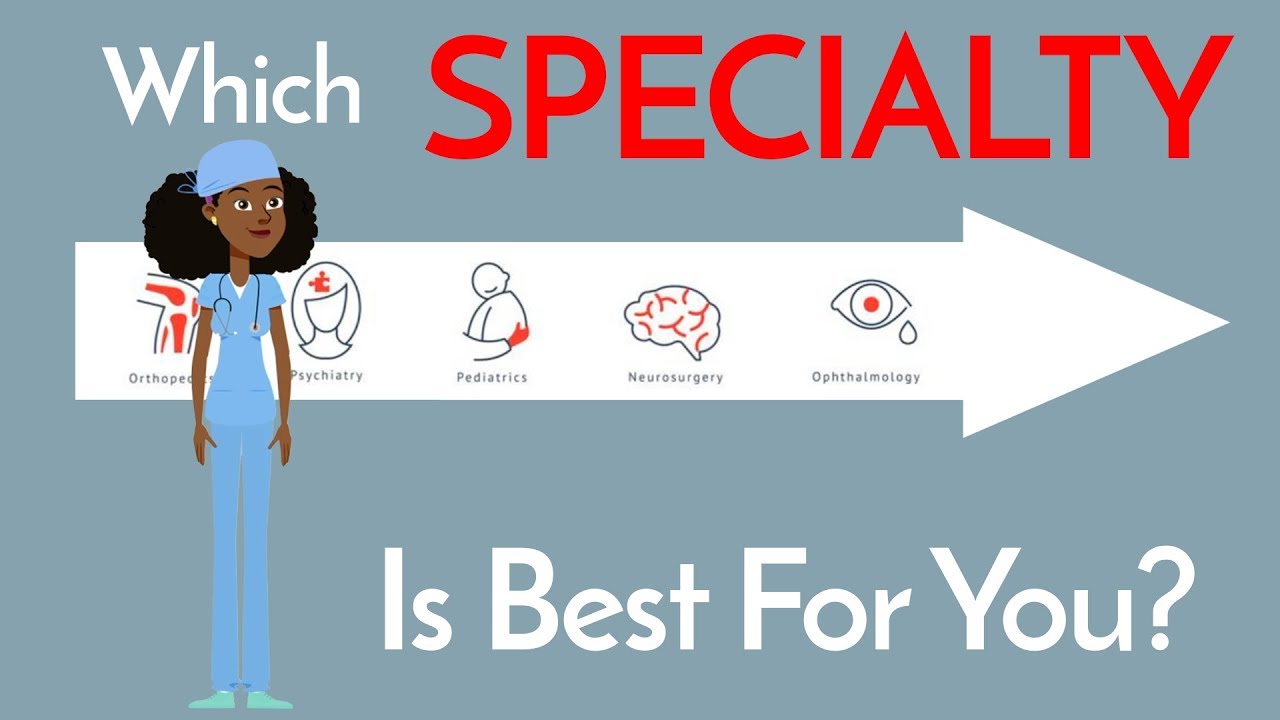
How to CHOOSE A SPECIALTY | 6 Steps
Choosing a career in medical specialties offers numerous benefits and can be a rewarding choice for healthcare professionals. Here are some compelling reasons to consider a career in medical specialties:
- Expertise and Depth of Knowledge - Pursuing a medical specialty allows individuals to delve deep into a specific area of medicine. Whether it's cardiology, dermatology, pediatrics, or any other specialty, professionals gain extensive knowledge and expertise in their chosen fields. This in-depth understanding enables them to provide specialized care, make accurate diagnoses, and offer tailored treatment options to patients.
- Professional Fulfillment -For many healthcare professionals, specializing in the medical field provides a sense of professional fulfillment. By focusing on a specific area, specialists can witness the impact of their work on patients' lives more directly. The ability to make a significant difference in the lives of individuals suffering from specific conditions can be incredibly rewarding and motivating.
- Demand and Job Security -The demand for specialized medical professionals continues to rise. With advancements in healthcare technology and an aging population, there is a growing need for specialists who can address complex medical issues. This high demand translates into increased job security and the potential for competitive salaries and benefits.
- Career Advancement Opportunities -Specializing in the medical field opens doors to various career advancement opportunities. As specialists gain experience and build a reputation, they may become eligible for leadership roles, research positions, or even teaching positions at renowned medical institutions. The path of a medical specialist is often accompanied by opportunities for professional growth and development.
- Collaboration and Interdisciplinary Approach -Medical specialties often involve working within multidisciplinary teams. Collaboration with other healthcare professionals, such as surgeons, nurses, radiologists, and pathologists, fosters a rich learning environment and allows for a comprehensive approach to patient care. The opportunity to collaborate with experts from different fields enhances knowledge exchange and promotes a holistic approach to medicine.
- Continual Learning and Advancements -Medicine is a constantly evolving field, with new research, technologies, and treatments emerging regularly. Medical specialists are at the forefront of these advancements, continually learning and staying up-to-date with the latest developments in their field. This commitment to ongoing education ensures that specialists provide the best possible care to their patients.
What Type Of Skills Training And Education Is Needed In Medial Specialities Career?
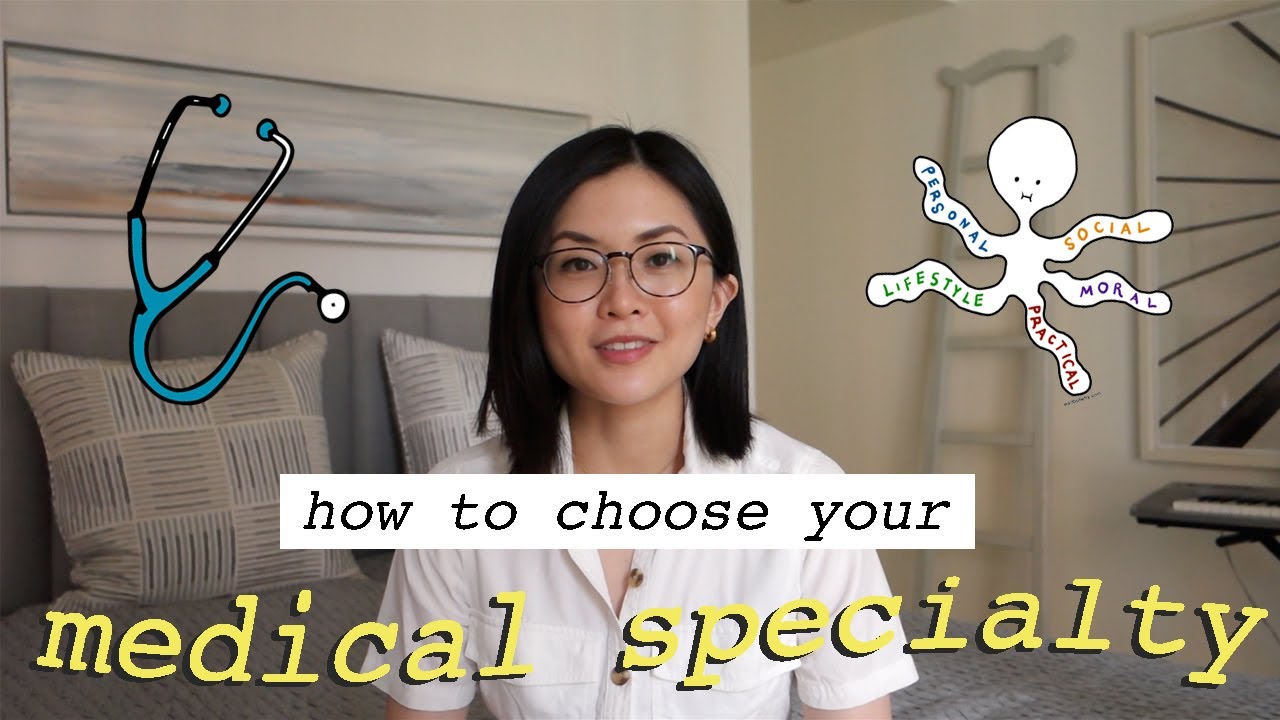
The Definitive Guide to Choosing Your Specialty | Frameworks and Tools
A career in medical specialties requires a combination of skills, training, and education to become proficient in a specific area of medicine. Here are the key components of skills, training, and education needed for a career in medical specialties:
- Medical Education -Start by obtaining a bachelor's degree, typically in a science-related field, which provides a strong foundation in the sciences and prepares you for medical school. After completing your undergraduate education, you must pursue a Doctor of Medicine (M.D.) or Doctor of Osteopathic Medicine (D.O.) degree. Medical school typically lasts four years and covers a broad range of medical knowledge and skills.
- Residency Program -Following medical school, aspiring medical specialists must complete a residency program specific to their chosen specialty. Residency programs are designed to provide comprehensive training and hands-on experience in a specific medical field. The duration of residency programs varies depending on the specialty and typically lasts between three to seven years.
- Clinical Skills Development -Throughout medical education and training, you will develop and refine clinical skills necessary for medical practice. These skills include history taking, physical examination, diagnostic reasoning, and treatment planning. Practicing these skills in real patient scenarios under the guidance of experienced clinicians is an essential part of medical education and training.
- Specialized Knowledge and Expertise -Each medical specialty requires a deep understanding of the specific diseases, conditions, and treatments within that field. Medical specialists must possess extensive knowledge of the latest research, evidence-based practices, and advancements in their chosen specialty. This expertise is acquired through continuous learning, attending conferences, staying up-to-date with medical literature, and engaging in ongoing professional development.
- Communication and Interpersonal Skills -Effective communication and interpersonal skills are vital in medical specialties. Specialists must be able to establish rapport with patients, effectively communicate diagnoses and treatment options, and provide emotional support. Additionally, collaborating with other healthcare professionals and effectively communicating complex medical information is crucial for interdisciplinary teamwork and patient care.
- Problem-Solving and Critical Thinking -Medical specialists encounter complex medical cases that require problem-solving and critical-thinking skills. They must analyze clinical data, interpret diagnostic test results, make accurate diagnoses, and develop appropriate treatment plans. Strong analytical skills, attention to detail, and the ability to think critically are essential in medical specialties.
- Adaptability and Resilience -Medical specialties can be challenging, with demanding work schedules, high-pressure situations, and unpredictable patient conditions. Being adaptable, resilient, and able to cope with stress is crucial for success in medical specialties. It is important to develop strategies for self-care and maintain a healthy work-life balance.
What Do People Working In Medical Specialties Do?
Professionals working in medical specialties focus their expertise on a specific area of medicine, providing specialized care to patients. Their responsibilities can vary depending on the specialty, but generally, they:
- Diagnose and treat patients- Medical specialists evaluate patients, review medical histories, perform physical examinations, order and interpret diagnostic tests, and develop treatment plans tailored to their specialty area. They may prescribe medications, recommend surgical interventions, provide specialized therapies, or administer specific procedures related to their field.
- Monitor and manage conditions- Medical specialists closely monitor the progress of their patient's conditions, ensuring appropriate management and making adjustments to treatment plans as necessary. They may order follow-up tests, review test results, and make recommendations for ongoing care and disease management.
- Perform specialized procedures- Some medical specialists are trained to perform specific procedures related to their field. For example, cardiologists may perform angioplasties or cardiac catheterizations, while dermatologists may conduct skin biopsies or laser treatments. These procedures require specialized knowledge and skills.
- Collaborate with healthcare teams -Medical specialists often work as part of multidisciplinary healthcare teams. They collaborate with other specialists, general practitioners, nurses, and other healthcare professionals to provide comprehensive and coordinated care to patients. The collaboration includes sharing information, consulting on complex cases, and contributing their specialized knowledge to ensure the best possible patient outcomes.
- Stay updated on research and advancements- Medical specialists are committed to lifelong learning and staying current with research and advancements in their field. They review medical literature, attend conferences and seminars, and participate in continuing education to remain up-to-date with the latest treatments, technologies, and evidence-based practices.
It is challenging to determine the single most useful medical specialty, as all medical specialties play critical roles in providing comprehensive healthcare. Primary care specialties, such as family medicine, internal medicine, and pediatrics, are considered crucial for providing preventive care, managing chronic diseases, and addressing common health issues. They serve as the foundation of the healthcare system, focusing on overall patient well-being, and often act as the first point of contact for individuals seeking medical care.
It is important to note that no medical specialty is inherently "easy." While it is subjective to determine the easiest medical specialty, some physicians may perceive fields like pathology or preventive medicine as less physically demanding or less stressful due to the different nature of their work. However, this does not diminish the complexity and importance of these specialties.
What Is The Happiest Medical Specialty?
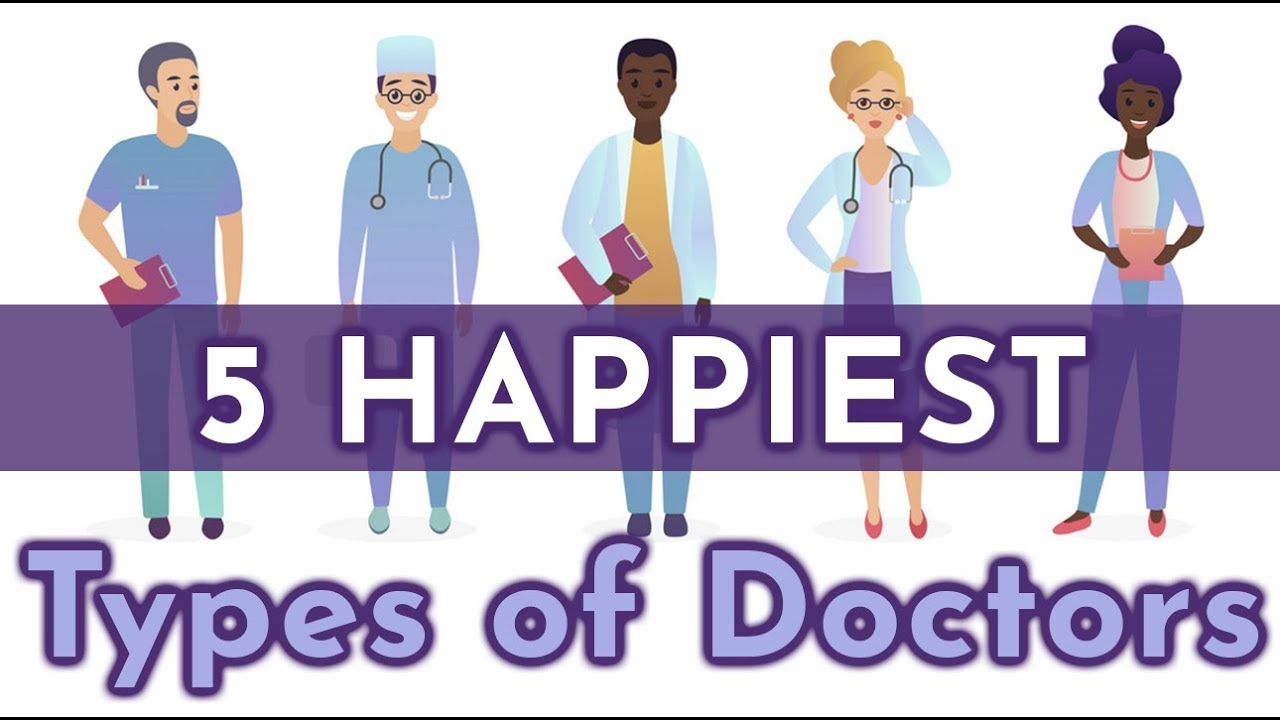
5 Happiest Types of Doctors by Specialty
Determining the "happiest" medical specialty is subjective and can vary from person to person. Happiness in a medical specialty can depend on individual interests, personal fulfillment, work-life balance, patient interactions, and various other factors. While some studies have attempted to assess physician happiness and satisfaction, it's important to note that individual experiences can vary significantly.
That being said, certain medical specialties are often associated with higher levels of job satisfaction and reported happiness among practitioners. These specialties typically offer a good balance between patient interactions, intellectual stimulation, and work-life balance. Examples of medical specialties that are often mentioned as having high levels of satisfaction include:
- Dermatology -Dermatologists specialize in diagnosing and treating conditions related to the skin, hair, and nails. The specialty is known for its good work-life balance, a wide variety of conditions treated, and generally positive patient outcomes.
- Psychiatry -Psychiatrists focus on diagnosing and treating mental health disorders. This specialty allows for long-term patient relationships, the opportunity to make a significant impact on patient's lives, and a diverse range of treatment approaches.
- Ophthalmology -Ophthalmologists specialize in diagnosing and treating eye diseases and disorders. The field offers a mix of medical and surgical interventions, a positive impact on patient's vision and quality of life, and the potential for a good work-life balance.
- Pediatrics -Pediatricians work with children, providing medical care from infancy through adolescence. The specialty often involves working with families, making a positive impact on children's health, and witnessing their growth and development.
- Radiology -Radiologists interpret medical imaging, such as X-rays, CT scans, and MRIs, to help diagnose and guide treatment for various conditions. The specialty provides opportunities for intellectual stimulation, a focus on diagnostics rather than direct patient care, and the ability to collaborate with other specialists.
It's important to note that the perceived happiness in a specialty can vary among individuals, and each specialty has its own unique challenges and rewards.
Pros And Cons Of Medical Specialty
Pros Of Medical Specialties
- Expertise and Impact -Medical specialists have the opportunity to develop deep knowledge and expertise in a specific area of medicine, allowing them to make a significant impact on patient care within their specialty.
- Job Satisfaction -Specializing in a field of interest can lead to increased job satisfaction and fulfillment, as specialists are able to focus on what they are passionate about and make a difference in patients' lives.
- Higher Earning Potential -Many medical specialties are associated with higher earning potential compared to general practice. Specialists often have unique skills and expertise that are in demand, which can lead to increased compensation.
- Intellectual Stimulation - Medical specialties offer continuous learning and intellectual stimulation as new research, technologies, and treatments emerge within the field. This keeps specialists engaged and motivated in their profession.
- Career Advancement Opportunities -Specializing in a medical field opens doors to various career advancement opportunities, including leadership roles, academic positions, research opportunities, and the ability to contribute to medical advancements in their specialty.
Cons Of Medical Specialties
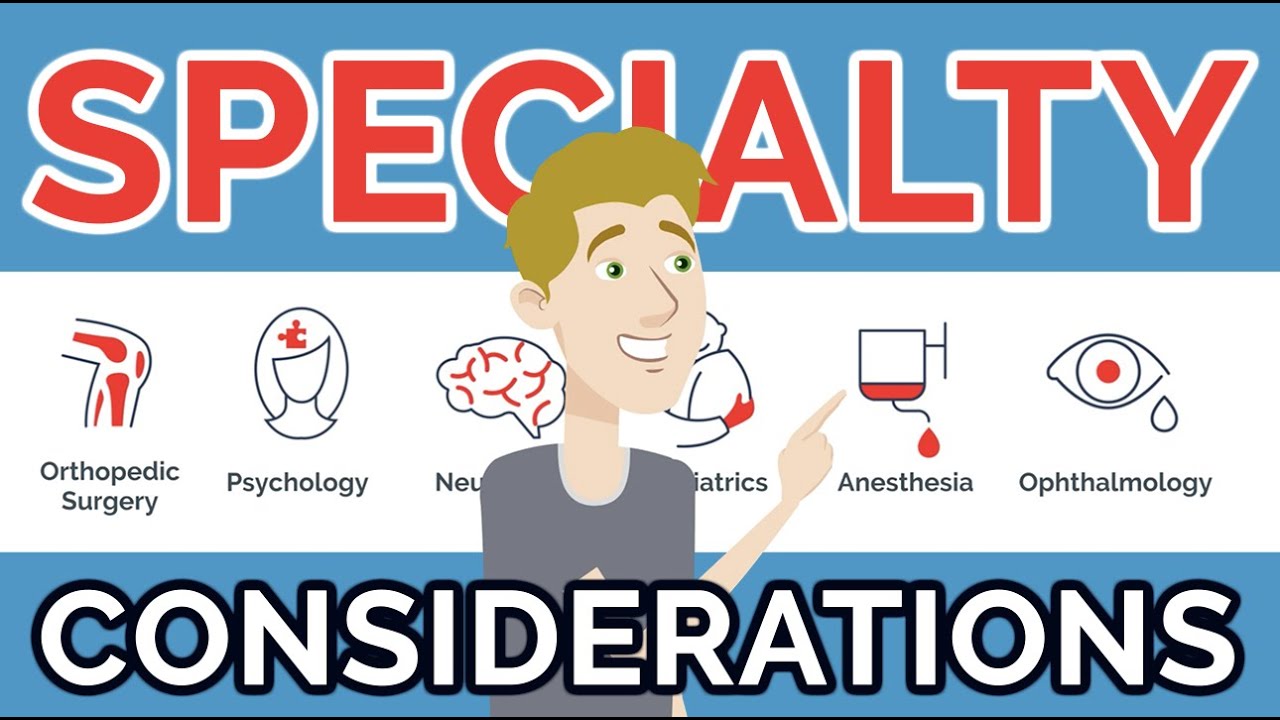
Choosing a Doctor Specialty | What People Overlook
- Long and Intensive Training -Becoming a medical specialist requires years of education and training. The journey typically involves completing medical school, residency programs, and potentially fellowship training. This can result in a significant time commitment and delayed entry into practice.
- Narrow Focus -While specializing allows for in-depth knowledge and expertise, it also means that specialists may have a narrower scope of practice. This can limit exposure to other areas of medicine and may require referral of patients outside of their specialty.
- Workload and Stress -Some medical specialties, such as surgery or emergency medicine, can be demanding in terms of long work hours, high-stress environments, and challenging cases. Balancing work and personal life can be more challenging in certain specialties.
- Ongoing Professional Development -Medical specialties require continuous learning and staying up-to-date with the latest advancements in the field. This may involve attending conferences, participating in research, and dedicating time to ongoing education throughout one's career.
- Potential for Burnout -The demanding nature of medical specialties, including the need for long hours, high-pressure situations, and dealing with complex cases, can increase the risk of burnout. It's important for specialists to prioritize self-care and maintain a healthy work-life balance.
People Also Ask
What Are The Different Medical Specialties?
Medical specialties encompass a wide range of areas, including cardiology, dermatology, neurology, pediatrics, orthopedics, oncology, gastroenterology, and many more. Each specialty focuses on a specific branch of medicine, addressing particular conditions and patient populations.
How Long Does It Take To Become A Medical Specialist?
The length of time required to become a medical specialist varies depending on the chosen specialty. After completing medical school, individuals typically need to undertake a residency program, which can range from 3 to 7 years, depending on the specialty. Some specialties may require additional fellowship training, adding another 1 to 3 years.
What Is The Difference Between A Medical Specialist And A General Practitioner?
A medical specialist has undergone additional training and education in a specific area of medicine, allowing them to focus on a particular branch and provide specialized care. General practitioners, on the other hand, provide comprehensive primary healthcare services to patients of all ages and treat a wide range of conditions without specializing in a specific field.
Can I Switch Medical Specialties During My Career?
While it is possible to switch medical specialties during your career, it generally requires additional training and education. The process of switching specialties varies depending on the specific circumstances and the requirements of the desired specialty.
Conclusion
Pursuing a career in medical specialties can be a highly rewarding and fulfilling choice for healthcare professionals. The opportunity to develop expertise in a specific area, make a profound impact on patient's lives, and enjoy job security and career advancement opportunities are all appealing aspects of this career path. Ultimately, choosing a career in medical specialties should be a well-thought-out decision that aligns with one's aspirations for professional growth and the desire to provide specialized care to those in need.